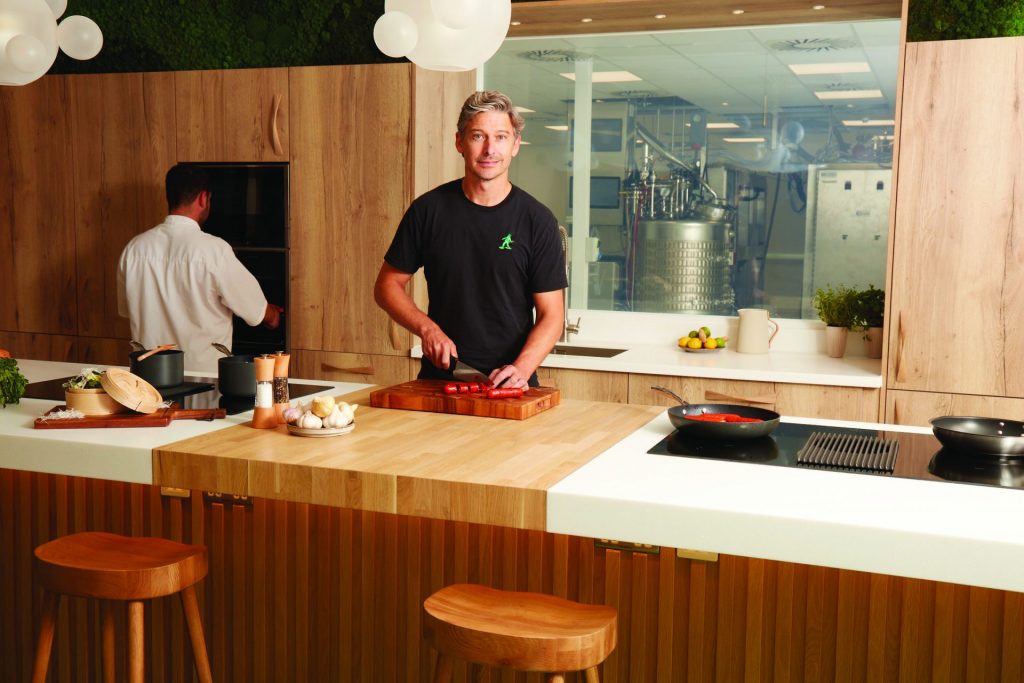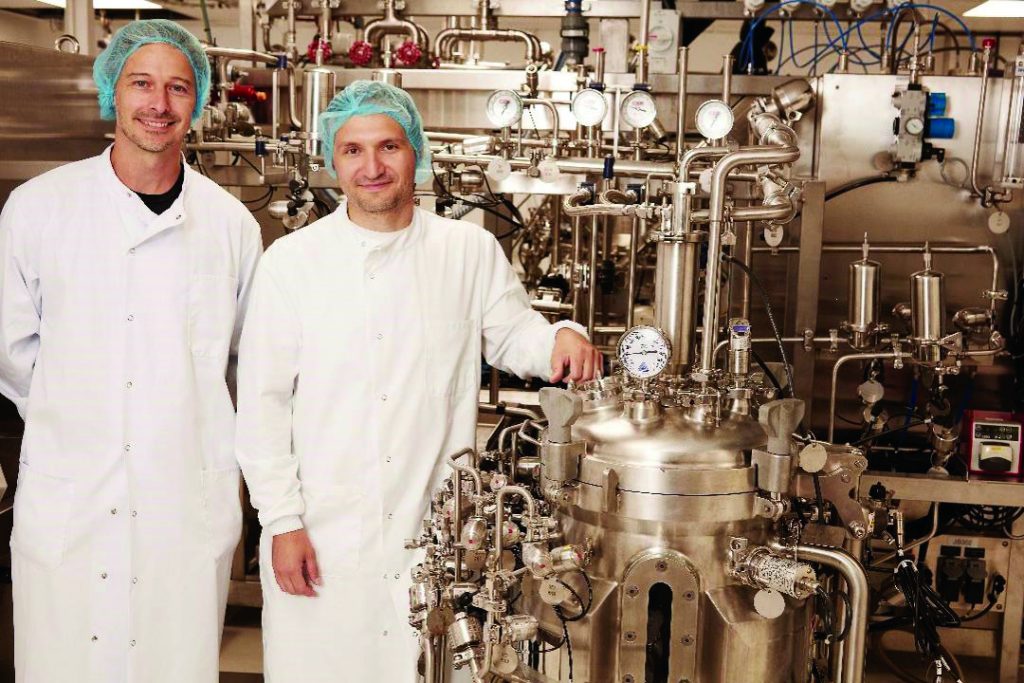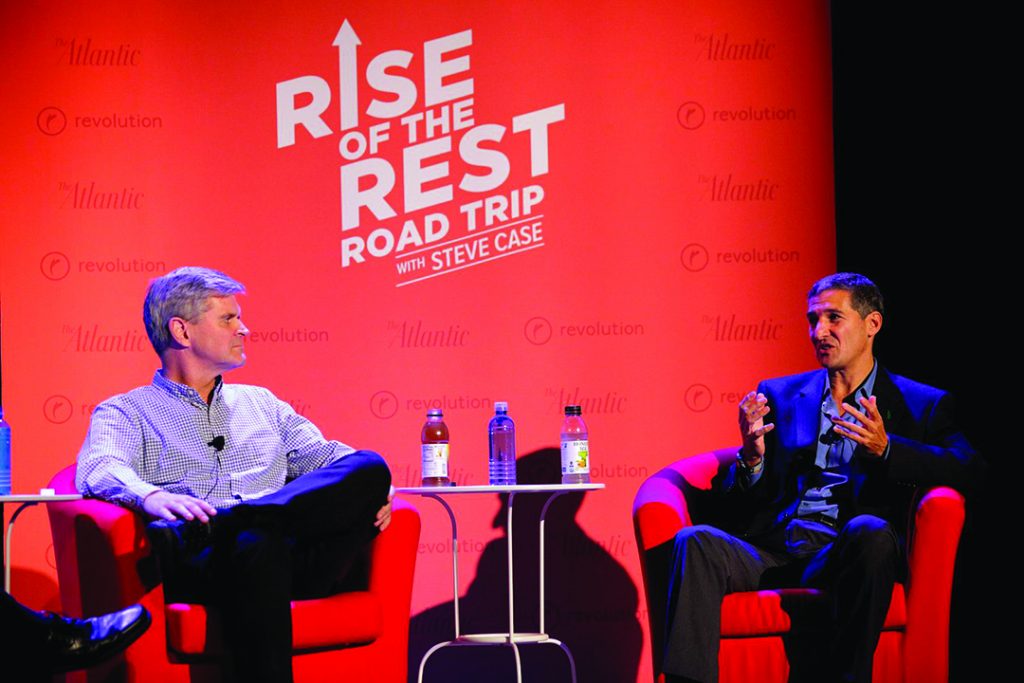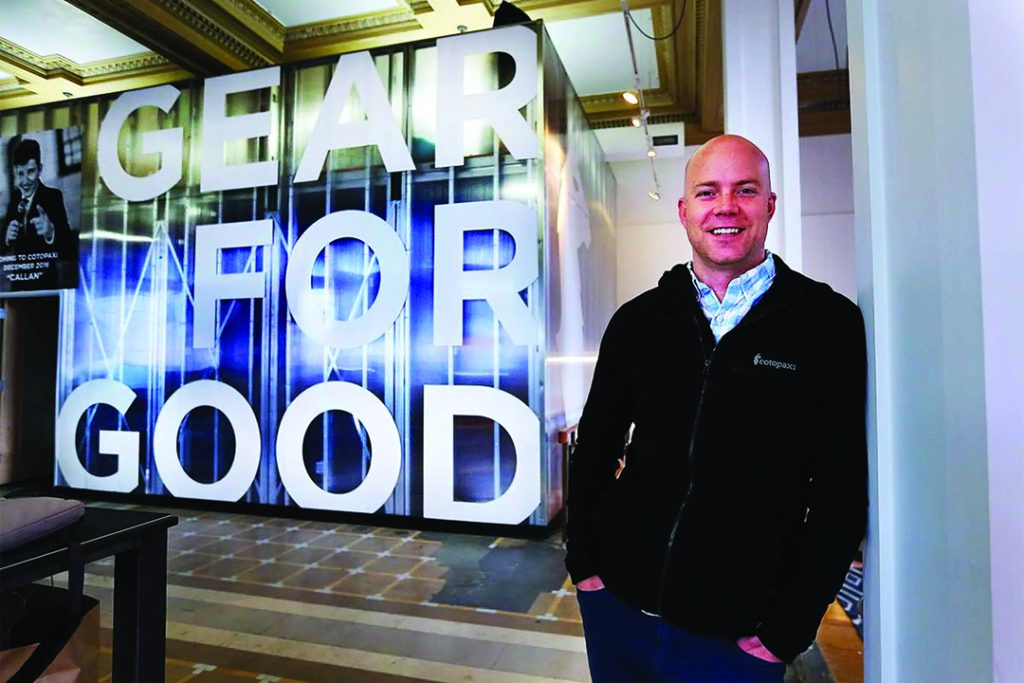Meat Reinvented

Ivy Farm Technologies is revolutionizing the way meat is created — and it’s a triple win.
To help address today’s growing challenges in sustainable meat production, Ivy Farm Technologies is on a mission to become the United Kingdom’s leading producer of cultivated meat. Founded in 2019, the company uses novel biotechnology developed at Oxford University to grow real meat in vitro. Currently in research and development, Ivy Farm Technologies has patents pending across a range of unique technologies.
Real Leaders chatted with CEO Richard Dillon about the innovative company’s groundbreaking approach to meat, which could improve three key areas — sustainability, animal welfare, and human health.
Real Leaders: What woke you up to the problem of how meat is produced today, and what inspired you to become part of the solution?
Dillon: I was a meat-loving consumer for years and I still am. There are a lot of great vegan and plant-based alternatives, but I grew up eating bacon, hamburgers, and hotdogs, so I have the taste for it. My oldest son, Jamie, opened my eyes to how destructive current animal farming is. He was at a brilliant school doing an immersion module on sustainability, and they touched on the food system. I distinctly remember I was in my kitchen and he asked me what I’m doing to help leave the world in a better place for his generation and future generations. It was a moment of “wow.”
I’ve been super lucky to work with great companies like Procter & Gamble, Red Bull Energy Drink, and Lagunitas. But I had to think going forward, could I put those business skills to potentially better use and help to solve some of the bigger questions?
I was lucky enough to get approached by Ivy Farm to join its board and help drive the commercial strategy. Eventually I was asked to become CEO, and I just dove down that rabbit hole of understanding not only how destructive animal agriculture is — with around 80 billion animals and 2 trillion fish slaughtered every year — but also that it is unsustainable and takes a big toll on the world’s resources. Once you go down that rabbit hole, it’s tough to turn it off. It’s tough to unsee it. So to lead a company that’s trained to change that and be on the forefront of revolutionary innovation is pretty cool. That’s how I got into it.
RL: How is Ivy Farm Technologies being a real leader in the meat industry?
Dillon:
We are challenging the status quo. We make cultivated meat, which is revolutionary to the way that animals are farmed and meat is created today.

We’re taking stem cells from animals, and we’re looking for the 0.001% of cells that our technology can not only identify but then train and convince to keep growing outside of the animal — with no antibiotics used and no risk of salmonella, e-coli, or other food-based pathogens. It’s never really been done.
RL: How will Ivy Farm Technologies take this to scale to make the greatest impact?
Dillon: Let’s take a step back. Meat is one of the biggest success stories of any consumer goods sector in the world. It’s been growing since the 1940s and booming year after year up to now, where 360 million tons of meat are consumed globally in a year. Let me put that into context. The average American is eating about 265 pounds of meat per person per year. In Europe and the U.K., it’s about 175 pounds. In China, it’s down around 110 pounds.
In India, it’s down around 45 pounds. I’m giving you these numbers because as China’s middle class starts to boom, and even in India and other emerging markets, they’re following the same path as the West. They’re wanting more nutritious products, including meat. It’s not only a source of nutritious input — it’s also a bit of a status symbol.
The need for meat in the long term is only going one way. Meat is so enormous that I don’t think there’s a future where we can decentralize the production of it into your house or into restaurants. It’s a bit like craft beer. Craft beer looks big, but the vast majority of beer is made in large, central breweries that consumers don’t see because they can get the efficiencies and economies of scale and get it mass produced. I think that’s the way that cultivated meat will have to go.

The majority of animal agriculture, of meat, is industrially farmed — huge cages, potentially indoor, massive lots of chickens, pigs, or cows. It’s not Old MacDonald Had a Farm. They’re not roaming around the meadow and dropping dead of old age. This is a factory, and they do it because of the efficiencies needed to get the costs down.
It’s going to be the same for cultivated meat, but we can do it with a much lower footprint — about 92% less emissions, 90% less land, and 66% less water than traditional industrial beef farming. The future I see is large meat breweries that serve cities and are built a bit closer to cities. They take up less land, they’re less intrusive, they’re less smelly, and they will be closer to where the consumption happens. But I don’t think in my lifetime I will see a countertop cultivated meat machine.
We have a broken, grim animal food system that is the second biggest contributor to greenhouse gases and the largest contributor in terms of sectors causing deforestation and freshwater pollution. So our business model is about challenging that status quo and then painting a better picture of the future.
Our pilot plant here in Oxford, U.K., is brewing meat — pure muscle and fat — and when we make this scale, it will produce meat much more efficiently and sustainably than farming is currently. Ultimately, that’s my goal. I’m working with the amazing scientists and engineers at Ivy Farm alongside external suppliers, partners, nongovernmental organizations, and governments to generate action toward that better future.

Ivy Farm Technologies swaps the cleaver for the culture dish to produce more sustainable meat. It plans to sell its muscle and fat to other food producers and ultimately develop its own brand of products for consumers.





Responses